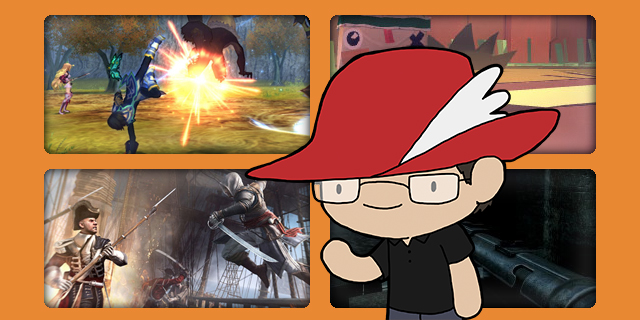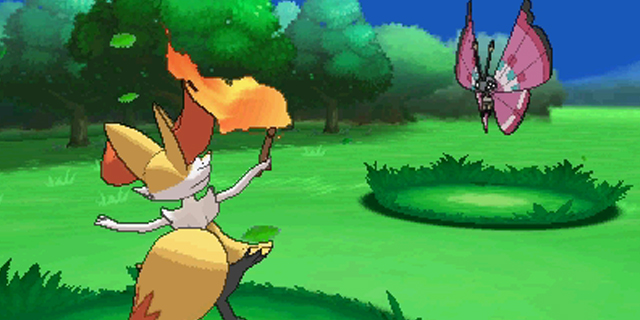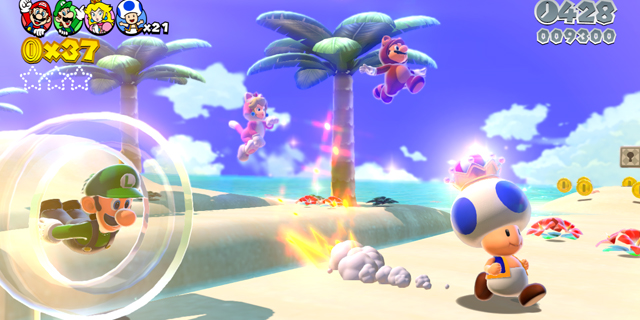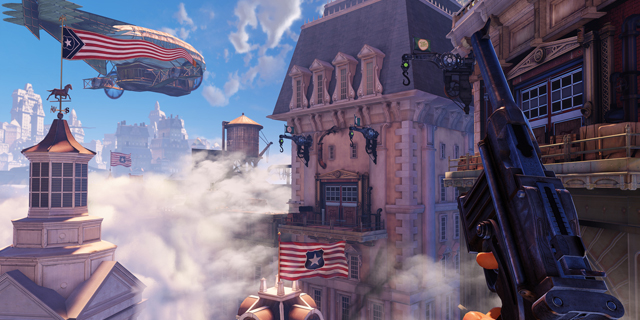
10. Papers, Please
When building a game, it is so important that its narrative meshes well with the gameplay. While Papers, Please‘s core mechanic is repetitive, the game adds complexity at a fairly good pace. The result is a game that isn’t excessively long and is hard to stop playing. A point-and-click game about a somewhat-mundane border checkpoint isn’t the place you expect a compelling narrative, but Papers, Please offers a wonderful branching story that made me go back and replay it.
9. Rayman Legends
Now that it’s finally seen a release, Rayman Legends lives up to all of its promises. It sports four-player co-op and second-screen touch controls (On Wii U and, to a lesser extent, Vita) and the same wonderful style as Rayman Origins. Building a 2D platformer to challenge the likes of Mario is a daunting task these days, especially on Wii U, and Legends pulls it off.
8. Pokemon X & Y
Pokemon has a track record of always being the same: every new iteration has more Pokemon to catch and and another set of Gym Leaders to challenge. With X & Y, we’ve finally received the update to the formula we’ve been waiting for since Diamond & Pearl. Many of the formerly-hidden aspects of the game are out in the open. One such addition is Super Training. Maximizing a Pokemon’s stats through EV training has been in the series for years and years, but until now, the games hadn’t really implemented any sort of in-game way to know how it worked. The intricacies of breeding remain the domain of the Internet researcher, though even this is much easier to do with accuracy now, giving me a feeling of actually “training” my team, instead of simply picking powerful moves and overleveling everything.

7. Animal Crossing: New Leaf
The whole Animal Crossing formula has always been something that succeeds in spite of itself. I never quite bought into the premise of the whole thing, and I think the biggest reason for that was due to the fact that it’s all offline. It may be vain, but decorating your house and paying off all of the additions is a lot more fun if you can show it off to friends. Animal Crossing: New Leaf was probably the first game that really promoted the online features of the 3DS, and showed that the days of friend code confusion are over. Beyond that, the addition of town projects makes the game far more creative than previous entries.
6. The Legend of Zelda: A Link Between Worlds
One of the hardest things to pull off is to return to a game that many of us have been looking back at with nostalgia for years. Nintendo has done an incredible job in bringing back the Hyrule of the Link to the Past era. The open-ended gameplay adds a nice twist to the usual formula and lets us explore at will.
5. Grand Theft Auto V
Grand Theft Auto has always been about the expansive cityscapes and cinematic sequences, and GTA V delivers on all of its promises. The San Andreas region is just as vibrant as we remember, and just as full of random craziness. The addition of three separate protagonists helps fit all of the different activities into the main storyline, without having to write a single character as some kind of lunatic. Older games in the series have always had a bit of a disconnect between actions and words, with the protagonist being relatively tame in cutscenes, then suddenly going on a rampage once the player gets control again.

4. Super Mario 3D World
Over the last few years, Mario has been torn between 2D and 3D, and since the revival of 2D Mario with New Super Mario Bros. on the DS, it’s become clear that each style has its own set of followers. 3D World has at last managed to combine the two with incredible results. 3D World combines the co-op of the New games with open-ended areas and boss battles that remind me of the Galaxy titles. It’s also great to see Peach as a playable character. Though she’s often expected to be the damsel in distress, the return of the Super Mario Bros. 2 skill sets is something I’ve wanted for a while.
3. Assassin’s Creed IV: Black Flag
Why aren’t there more pirate themed games? Assassin’s Creed III was a great game with a couple minor issues, but Black Flag fixes all of those and adds many changes to the formula. The changes to the “real-world” plot and the more laid-back protagonist have made me remember why I started playing these games in the first place. Black Flag delivers just what I wanted from an Assassin’s Creed game.
2. Fire Emblem: Awakening
For Fire Emblem, the difficulty, specifically the concept of permanent death, has become a hallmark of the series. With Awakening, I feel like a perfect balance has been struck. With separate choices for challenge and perma-death, it offers a good challenge, but also allows players to turn on the consequence for failure. The result is a more accessible game that keeps the difficulty that longtime fans expect.

1. BioShock Infinite
BioShock has been one of the highlights of its generation. Excelling at telling a story though environment, all three games have offered a wonderful mix of science-fiction and historical settings. It takes a great game to pull off a plot twist without it becoming rather obvious as you play. Thanks to the huge quantity of environments and backstory, Columbia itself becomes a character in the story, and learning about it is integral to the whole game. Infinite is the pinnacle of what this kind of storytelling has to offer: a story with immense depth that doesn’t feel interrupted by gameplay.



















